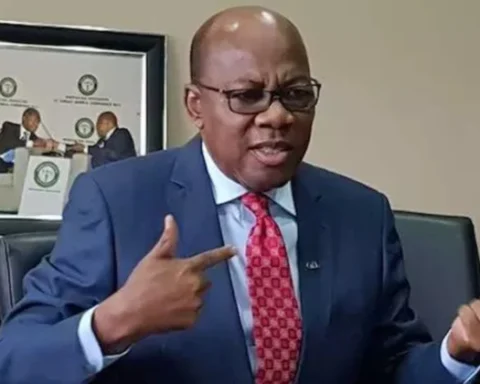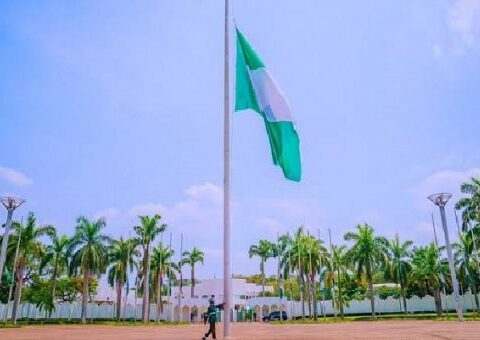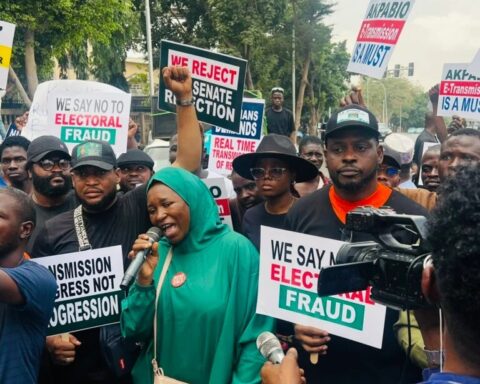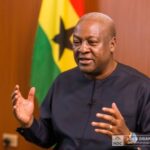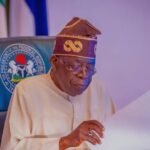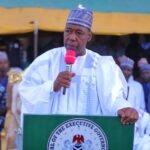In Nigeria’s long, troubled dance between faith and politics, few figures have walked the moral tightrope as boldly and as controversially as Bishop Matthew Hassan Kukah, the Catholic Bishop of Sokoto Diocese. Once celebrated as a fearless conscience of the nation, Kukah’s recent caution over the language of genocide and governance has sparked a wave of soul searching among Christians and social commentators. The question reverberating across Nigeria’s public square is simple but haunting: What happened to Bishop Kukah? The same cleric who once thundered against government complicity in mass killings now urges restraint. The same man who denounced silence as sin now appears, to many, to be wrapped in diplomacy. But perhaps, in the tragic theatre of Nigeria’s decline, Bishop Kukah’s evolution is less about betrayal and more about the unbearable cost of truth in a country where every word can ignite fire.
Two Bishops, One Wounded Church
The controversy began when two Catholic bishops; Matthew Hassan Kukah of the Catholic Diocese of Sokoto and Wilfred Chikpa Anagbe of the Catholic Diocese of Makurdi, offered starkly different interpretations of the same Nigerian tragedy. Bishop Anagbe, who shepherds in Benue State, has become a voice from the frontlines. His diocese lies in the heart of Nigeria’s Middle Belt, where armed herders and militias have left trails of blood, ashes and widows.
In July 2025, speaking to ACI Africa, Bishop Anagbe revealed that he had shut down 17 parishes because their members had either been killed or displaced. “This is genocide,” he declared. “There is a clear attempt to wipe out Christian presence in parts of Benue” (ACI Africa, July 2025). For Bishop Anagbe, the word “genocide” is not political; it is pastoral. It is the language of funerals, of open graves and burnt altars. His world is defined by mourning, not metaphors.
Then came Bishop Kukah’s voice, once synonymous with prophetic outrage but now echoing a different tone. Speaking in October 2025, Bishop Kukah urged caution against labeling Nigeria’s crisis as genocide, warning that such designations could harm interfaith dialogue and diplomatic relations (Sundiata Post, October 2025). He argued that the violence was “complex,” rooted not merely in religion but also in ethnicity, poverty, criminality, and governance collapse.
For many Nigerians, the statement landed like a stone in still water; heavy, cold, and unsettling. The same Bishop Kukah who had once declared that “the blood of the poor cries out for justice” now seemed to speak the language of diplomats, not prophets.
The Bishop Kukah of Then and Now
To understand why this debate has struck such a deep nerve, one must recall the Kukah of yesterday. In the years leading up to and during Muhammadu Buhari’s presidency, Bishop Kukah was a national conscience. His Christmas and New year homilies became annual moral indictments. His words, laced with courage and clarity, condemned the government’s inaction over killings in the North and the deepening divisions tearing Nigeria apart. In January 2021, Kukah told Premium Times that Nigeria’s woes stemmed from “a failure of leadership and conscience,” insisting that corruption and manipulation of religion were the twin evils destroying the country.
He was loved for his audacity. Muslims saw in him a cleric who criticised injustice even-handedly. Christians admired his readiness to challenge power. Civil society embraced him as a rare priest who understood both theology and politics. That was the Bishop Kukah of “then.” The Bishop Kukah of “now,” as many Nigerians see him, speaks differently, as if his once fiery convictions have been filtered through the lens of political caution.
Between Graves and Dialogue Tables
It is tempting to pit Bishop Anagbe and Bishop Kukah against each other; the prophet of lamentation versus the diplomat of dialogue. But to do so would be simplistic. Both men are right, and both are broken by the same nation. One preaches from the graveside; the other from a fragile table of peace. One buries parishioners; the other prevents riots.
The contrast between them envisages a broader tragedy: Nigeria has failed so deeply that contradictory truths can coexist under the same flag. Bishop Anagbe sees genocide because he lives amidst its ashes. Bishop Kukah sees complexity because he lives in Sokoto, where Christian–Muslim coexistence, however tense, remains possible. Yet, the pain of Nigerians listening to both men is real. The moral question is not about geography but consistency. Should truth sound different depending on where one stands?
The Weight of Proximity to Power
Critics have not held back. Some point to Bishop Kukah’s growing closeness to the political establishment, especially after his appointment as a pro-chancellor of a federal university; a government position that, to many, blurs the line between prophetic independence and political acceptance. “I had been an ardent fan of Bishop Kukah because he was fearless during Buhari’s time,” one Catholic wrote on social media. “Now, his opinion depends on his political employer and that is heartbreaking.”
Others recall that even global moral icons like Archbishop Desmond Tutu of the Angelican Church in South Africa, etc, faced similar accusations toward the twilight of their activism, when proximity to power dulled once fiery voices.
In Bishop Kukah’s case, what pains many Nigerians is not that he changed, but that he changed while the nation worsened, his fellow Catholic Bishop was heartbroken and lamented about closing down seventeen parishes and losing many parishioners. The very injustices Bishop Kukah condemned in the past have deepened under the current administration. The killings continue; corruption remains endemic. Yet his outcry has softened.
As Rev. Fr. Kelvin Ugwu MSP, a Nigerian missionary priest serving in Gambia aptly noted, “If this were any other bishop, many would not be so cautious. But because it’s Kukah; a man whose courage once inspired millions, we are tiptoeing.”
Fr. Kelvin Ugwu Nwosu went further: “If Bishop Kukah has learned to ‘understand’ today’s government, then fairness demands that he apologise to those he condemned before.” These are not words of hostility, but of heartbreak, the kind that comes when heroes become human.
Nigeria’s Selective Outrage
To be fair, Bishop Kukah’s caution is not entirely without merit. Nigeria’s delicate religious balance means that one wrong statement can ignite violence. His diocese in Sokoto sits in a region where Christians are a small minority. His words are measured, perhaps out of pastoral necessity. Yet, the unease among Nigerians is not just about what he said, but when he chose to say it. During former President Buhari’s administration, Bishop Kukah’s homilies were fearless, even confrontational. Today, under President Tinubu, an administration elected in one of the most disputed polls in modern Nigerian history, where even, it was alleged the Independent National Electoral Commission (INEC) backtracked on its own BVAS technology, the same bishop preaches caution and dialogue.
The optics are unflattering. Nigerians, weary of hypocrisy in high places, smell a double standard. As one commentator put it bluntly: “If we spoke boldly when others ruled, we must not go silent now that friends of our friends are in charge.” Nigeria is too wounded for selective outrage. The truth cannot be seasonal.
A Mirror to the Church
The ongoing debate is not merely about Bishop Kukah; it is about the Church’s prophetic integrity. Within the Catholic Bishops Conference of Nigeria (CBCN), there is no single voice on how to describe the nation’s violence. Some prelates, like Bishop Anagbe, speak with urgency and lamentation. Others, like Kukah, adopt caution and diplomacy. Both are responding to their contexts, yet the contrast exposes how unevenly Nigeria’s pain is distributed. One bishop buries victims; another hosts interfaith dialogues.
Still, the Church’s credibility depends on its ability to hold these two realities together. It cannot mute prophetic truth in the name of political prudence, nor can it ignore dialogue in the name of righteous anger. The late Archbishop Oscar Romero of El Salvador once said, “The Church would betray its own love for God and for the poor if it stopped being the voice of those who have no voice.” That remains the challenge for Nigeria’s clergy: to remain prophetic without becoming partisan, to remain compassionate without becoming complicit.
The Erosion of Trust
What makes this moment particularly painful is that Bishop Kukah’s moral authority was built on trust, the kind that transcended religion and politics. He was, to many, the Desmond Tutu of Nigeria; articulate, fearlessly telling truth to power. To see that voice now wrapped in diplomatic caution feels, to some, like a betrayal of the very courage that once defined him. Of course, men of faith evolve. The world of 2015 is not the world of 2025. Yet, moral evolution should not look like moral retreat. The people who once found courage in Bishop Kukah’s defiance now find confusion in his restraint.
In a country where citizens are slaughtered, displaced, and silenced daily, restraint feels like complicity. It is more sad to note that the bleeding Catholic Diocese of Makurdi is in the capital of Benue State where a Catholic priest, Rev Fr (Dr) Hyacinth Alia is the governor.
A Nation That Silences Its Prophets
But perhaps, the greater tragedy is that Nigeria remains a nation that punishes its prophets. When the clergy speak boldly, they are branded political. When they temper their tone, they are accused of compromise. The same people who once hailed Bishop Kukah as a hero now crucify him for prudence. Maybe, then, Bishop Kukah’s transformation is less about hypocrisy and more about fatigue; the exhaustion of speaking truth to a Nigerian State that refuses to listen. Still, the burden of moral leadership remains heavy. When the voice of a conscience trembles, the soul of a nation quakes with it.
Holding Both Truths Together
According to Rev Fr Chinaka Justin Mbaeri; “the way forward is not to shame Bishop Kukah or canonize Bishop Anagbe. It is to hold both wounds together”. Nigeria’s Church must not pit one bishop against another. Rather, it must learn from both: from Bishop Anagbe’s courage to name evil, and from Bishop Kukah’s wisdom to seek peace without surrendering truth.
Pretending that the crisis is purely political is dishonest. Ignoring its ethnic and religious dimensions is equally shortsighted. The Church’s mission, in this wounded land, is to speak the truth in love not in fear.
As a theologian, Henri Nouwen once wrote, “The voice of the prophet is gentle enough not to crush the bruised reed, yet strong enough to call the dead to life.” That is the balance Nigeria needs now, prophets who are both gentle and unyielding.
Conclusion: Between Fire and Silence
Whether Bishop Kukah’s recent tone marks a new wisdom or a subtle compromise, only history will decide. But one thing is certain: Nigeria cannot afford for her moral voices to go silent. The Bishop Kukah of yesterday reminded Nigerians that “the blood of the poor is the price of bad governance.” The Kukah of today must remember that truth loses its power when it becomes polite. Bishop Anagbe speaks from the graveside; Bishop Kukah speaks from the dialogue table. Between them lies the conscience of a broken nation and the haunting question of whether moral courage can survive proximity to power.
Nigeria is bleeding. Its people are watching. And its bishops and pastors once united by fire, now stand divided by fear.
Shalom.
•Rev Fr Ben Amuchie is an Old Catholic Clergy, Lecturer, Prolific Writer and Public Affairs Analyst whose works focus on faith, governance, education and the moral conscience of the nation.

